5 Significant Butter Recalls That Made Headlines
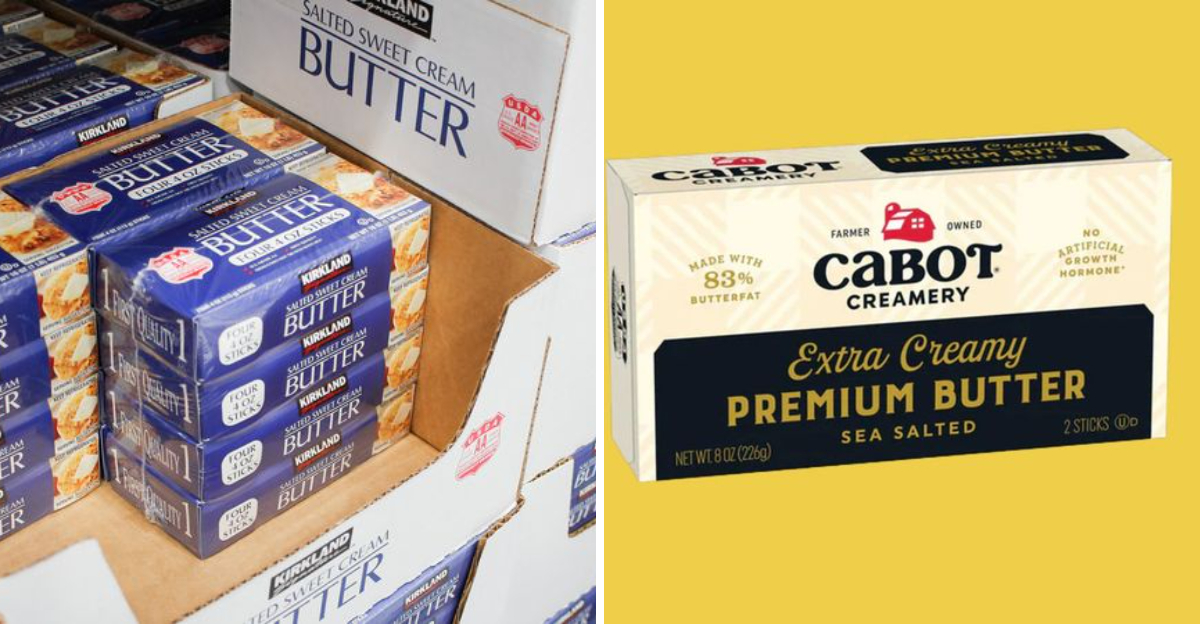
Butter, a staple in many kitchens, sometimes becomes the center of attention for the wrong reasons. From undeclared allergens to bacterial contaminations, these recalls underscore the importance of food safety. Here are five significant butter recalls that captured public attention.
1. Costco’s Kirkland Signature Recall
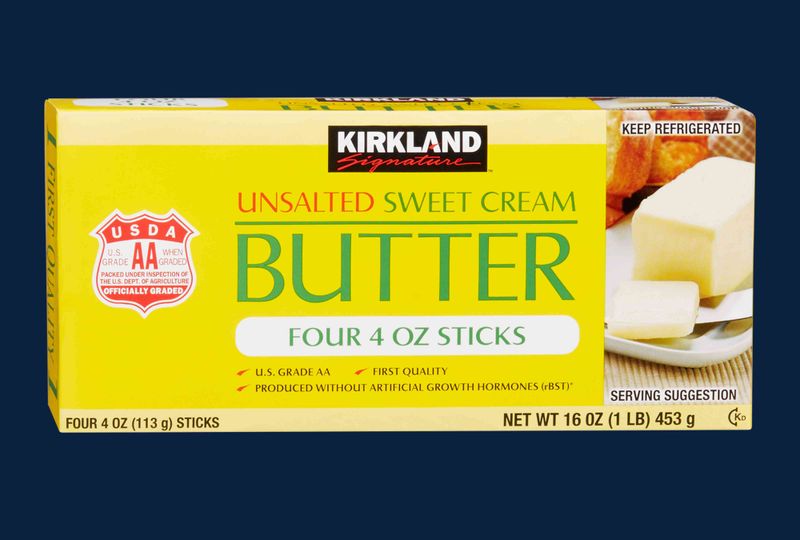
Imagine walking down the grocery aisle only to discover your favorite butter brand has an unexpected issue. Costco had to recall its Kirkland Signature butter due to missing “Contains Milk” labels. This oversight posed a significant risk to individuals with milk allergies, despite the obvious presence of dairy.
Regulations are strict when it comes to allergens, and such errors can lead to severe health consequences. The recall affected nearly 80,000 pounds of butter.
Ensuring proper labeling is essential, reflecting both the importance of consumer safety and compliance with FDA mandates.
2. Cabot Creamery’s Coliform Concern
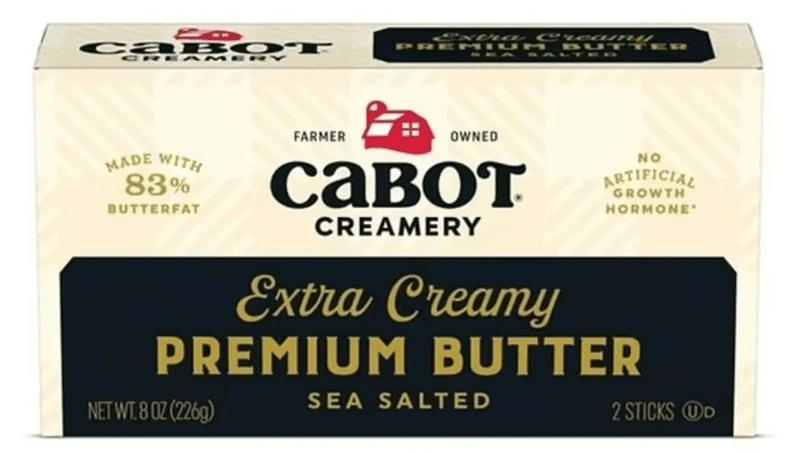
April 2025 saw Cabot Creamery voluntarily recalling its Extra Creamy Premium Sea-Salted Butter due to coliform bacteria detection. Coliform serves as an indicator of possible fecal contamination, an alarming discovery for any food product.
Although this was classified as a Class III recall, signaling a low health risk, the presence of such bacteria raises food safety questions.
This recall involved several states but luckily did not result in any reported illnesses. Such incidents remind us of the intricate journey from farm to table and the importance of vigilance at every step.
3. Cabot’s Multi-State Recall
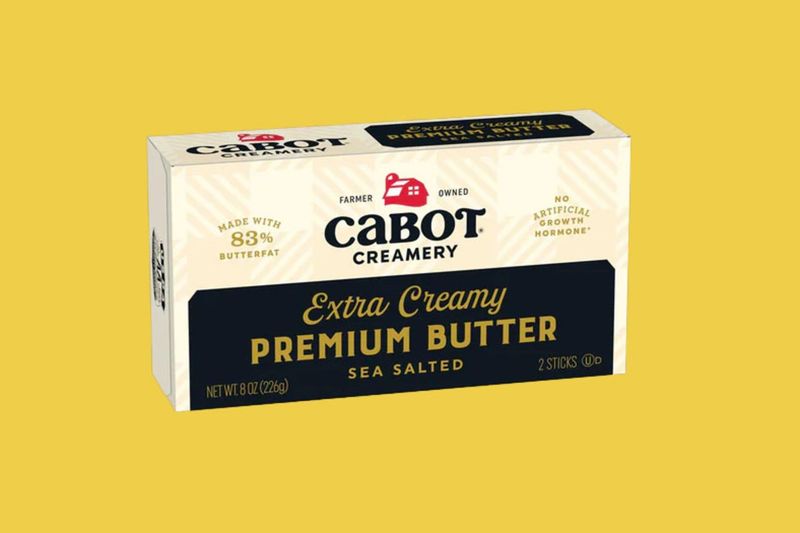
Cabot Creamery faced another hurdle with its butter in several northeastern states. The recall, due to bacterial concerns, focused on sea-salted butter sticks packaged in multiple locations.
While most of the contaminated batch was recovered promptly, a small number reached consumers in Vermont. Fortunately, no illnesses were reported.
This recall serves as a reminder of the challenges in maintaining food safety across state lines and the swift actions required to protect public health.
4. Costco’s FDA Class II Recall
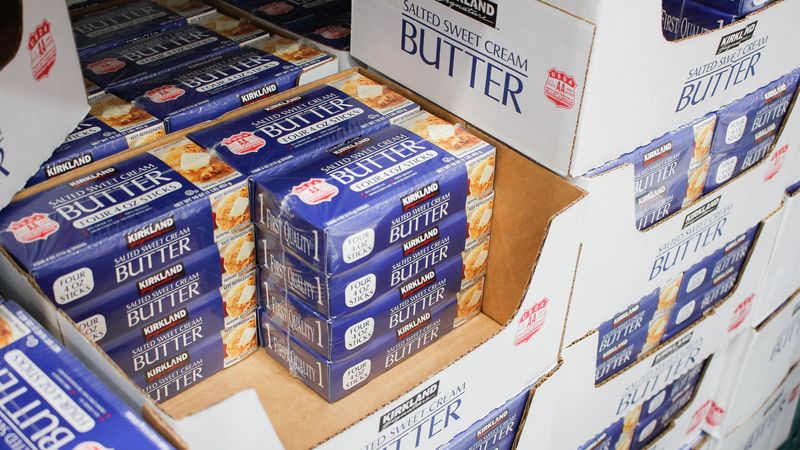
Another chapter in Costco’s recall saga was its classification as a Class II by the FDA. This indicated that exposure to the butter could cause temporary or medically reversible adverse health consequences.
Such recalls underscore the critical nature of allergen labeling compliance. Proper disclosure is more than a regulatory checkbox; it’s a protective measure for consumers.
This classification highlights the nuanced nature of food safety regulations and the ongoing responsibility of retailers to uphold these standards.
5. Global Allergen Labeling Issues
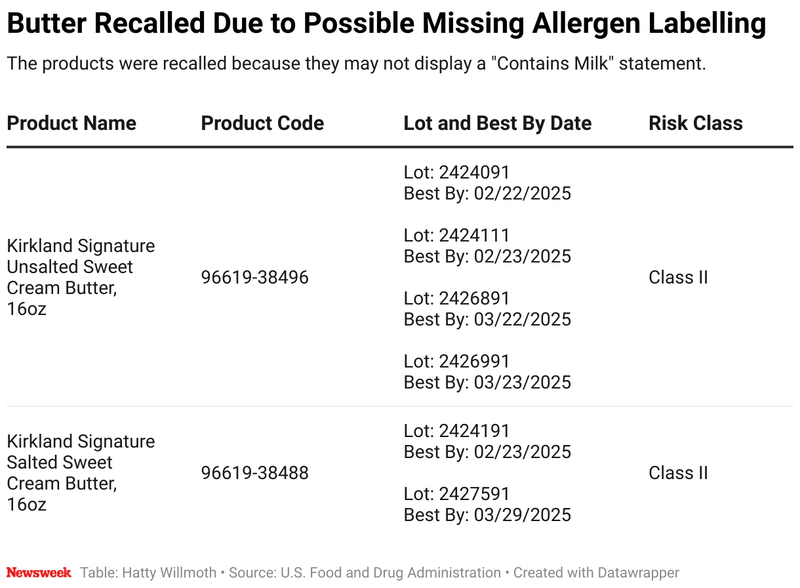
The spike in butter recalls reflects global struggles with allergen labeling. Products marketed as “natural” or dairy-based sometimes fail to meet compliance standards. This trend poses risks not only from health perspectives but also from a consumer trust standpoint.
Manufacturers must prioritize clear labeling practices to prevent such oversights. This global pattern serves as a critical reminder of the interconnectedness of food safety, regulatory compliance, and consumer rights.
Clear labeling is not just a recommendation; it’s essential for ensuring the well-being of all consumers.
